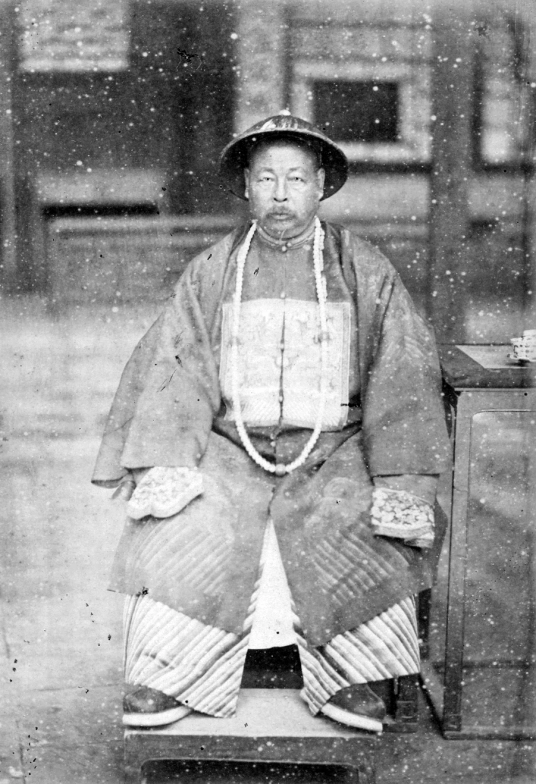The image ids from 维基百科.
It is said that the general Tso Tsung-tang liked playing Weiqi very much and was no match for his peers. (Weiqi is a game that is similar to Western chess.)
Once, on his way to battle, Tso Tsung-tang saw a cottage with a plaque hanging on the beam, which read “The Number One Chess Player in the World.” This bothered Tso Tsung-tang and he insisted on entering the hut, where he played three games with the hut owner.
The owner lost all three sets. Tso Tsung-tang smiled at him and said, “You can take down this plaque now!”
Tso Tsung-tang was full of confidence and left in high spirits.
It didn’t take long for Tso Tsung-tang to win the battle and return to the palace. When he passed by the hut, he saw that the plaque had still not been removed, so he went inside again and played three games with the professed expert.
This time, he lost all three games.
Tso Tsung-tang was very surprised and asked the cottage owner what was happening.
The Weiqi master replied: “The last time you came to play against me, you were on your way to lead the troops into battle. I knew that if I beat you then, you would be too dispirited to do your best, and the battle might be lost. Now that you have returned victorious, of course, there is no reason for me not to play at my best.”
The real expert can always win, but he does not need to do so; he is confident enough in himself that throwing a game will not harm his self-esteem. This enables him to show empathy when it is required.
We can apply this lesson to our lives. Cleverness does not necessarily include wisdom, but wisdom must be tempered with intelligence. A clever man experiences both gains and losses, but a wise man is brave enough not to let these affect him.
The original Chinese is from https://ls.httpcn.com/info/html/2018118/KOAZUYKOAZME.shtml.
Note:
Tso Tsung-tang (1812-1885), also known as Ji Gao and Pu Cun, was born in Xiangshang Nongren, Hunan Xiangyin (now Xiangyin County, Yueyang City, Hunan Province). He is regarded as a Modern Chinese national hero, politician, strategist, poet, and one of the representatives of Westernization.
『聰明跟智慧』
據說左宗棠很喜歡下圍棋,其屬僚皆非其對手。
有一次,左宗棠出征途中,看見有一茅舍,橫樑上掛著匾額「天下第一棋手」。左宗棠不服,入內與茅舍主人連弈三盤。
主人三盤皆輸。左宗棠笑道:「你可以將此匾額卸下了!」
隨後,左宗棠自信滿滿,興高采烈的走了。
過沒多久,左宗棠班師回朝,又路過此處。左宗棠又好奇的找到這間茅舍。赫然仍見「天下第一棋手」匾額仍未拆下,左宗棠又入內,與主人再下了三盤。
這次,左宗棠三盤皆輸。
左宗棠大感訝異!問茅舍主人何故?
主人答:「上回,您有任務在身,要率兵打仗,我不能挫您的銳氣。
現今,您已得勝歸來,我當然全力以赴,當仁不讓啦!」
(*)世間真正的高手,是能勝,而不一定要勝,有謙讓別人的胸襟。
能贏,而不一定要贏,有善解人意的意願。生活又何嘗不是如此呢?
(*)聰明不一定有智慧,但是智慧一定包括聰明。聰明的人得失心重,有智慧的人則勇於捨得。
中文文章來自https://ls.httpcn.com/info/html/2018118/KOAZUYKOAZME.shtml.













